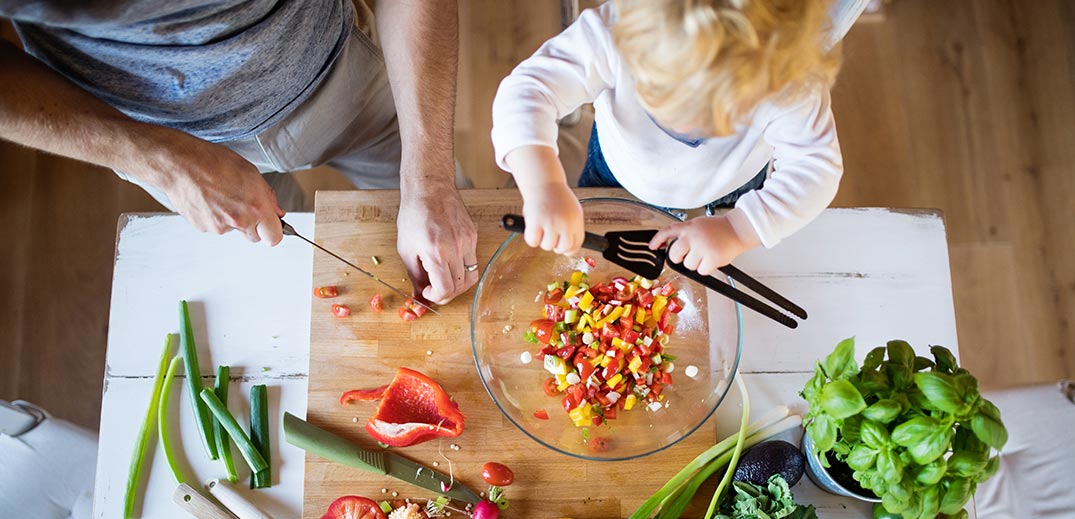I have been leading the Nestlé for Healthier Kids initiative for a while now. At the heart of this global, group-wide, multi-pronged initiative – which aims to help 50 million kids by 2030 lead healthier lives – is the notion that children should adopt healthy eating habits from an early age – because habits formed in toddlerhood and early childhood are much more likely to be carried through to adulthood. (A healthy diet is, by way of reminder, one that is diverse and includes vegetables, fruits and grains.)
Now the tricky part. How do you actually get children, who can be fussy eaters, to eat what’s good for them? Involving them in the preparation of meals is key – it’s a concept that lies at the core of our Nestlé for Healthier Kids initiative.
Habits formed in early childhood are much more likely to be carried through to adulthood.
We have rolled out a number of initiatives to drive that point home and to help parents make it possible. Our Maggi Kochstudio in Germany and Maggi Mum & Me Cooking workshops in Thailand are bringing that very concept to life. Our latest Nestlé for Healthier Kids campaign, which has reached over 200 million parents and caregivers, stresses the importance of good nutrition, while providing practical and simple tips to involve children in the preparation and cooking of meals.
It’s one of those things that you intuitively know is right: Parents who regularly enlist their children’s help in the kitchen would have witnessed first-hand what a difference it can make. Sure, it can get messy at times, but children are more likely to try new ingredients and to develop an appreciation of the importance of good nutrition – among other things.
We looked at all the evidence-based research available on the topic. We concluded that this was an important fact that could really help tip the scales when it comes to setting children on a healthy path in life.
Nestlé Research scientists have looked at the differences in the consumption of vegetables between children whose parents involve them in meal preparation and children whose parents do not.
One study found that involved children had a higher salad intake (+76%) and a higher cauliflower intake (+23%) than the children who were not involved in the preparation of the meal. On average, children who cooked their own meal consumed 207 grams of vegetables in line with the daily recommended amounts of 200-220 grams of vegetables.
On the other hand, children who were not involved in the preparation process consumed 145 grams – a difference of more than 40%.
To top it all off, children who got involved in the preparation of the meal tended to report increased positive feelings and confidence, more so than children who did not cook.
And there is plenty of independent research out there that points to the benefits of involving children in the kitchen.
You get the idea: Cooking together as a family not only makes you feel happier – it makes you healthier.








